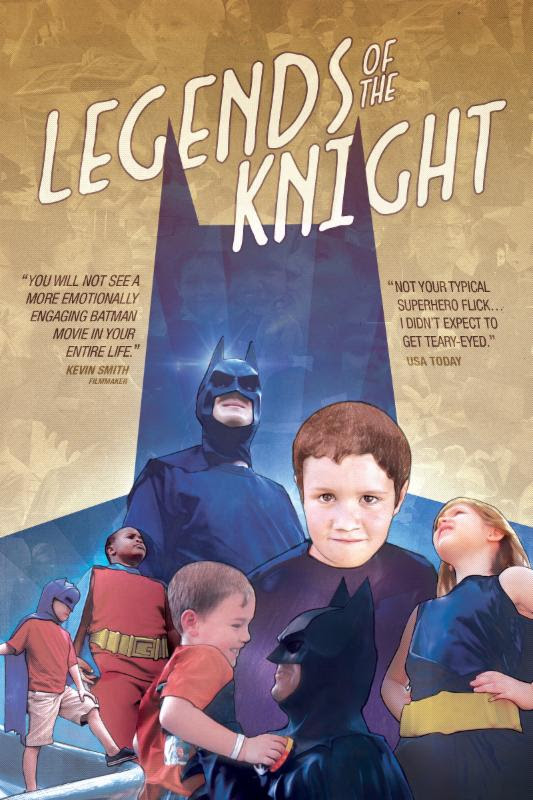Legends of the Knight Far More Than Comic Book Doc
FTC Statement: Reviewers are frequently provided by the publisher/production company with a copy of the material being reviewed.The opinions published are solely those of the respective reviewers and may not reflect the opinions of CriticalBlast.com or its management.
As an Amazon Associate, we earn from qualifying purchases. (This is a legal requirement, as apparently some sites advertise for Amazon for free. Yes, that's sarcasm.)

When I sat down to watch LEGENDS OF THE KNIGHT, I confess my expectations were low. I elected to review it because I'm a lifelong Batman fan. At 6, I had converted the top bunk into Wayne Manor, with a hand-drawn picture of George Washington tacked to the wall that, when trouble arose (as it inevitably did) I would turn around so that it displayed the convenient sign "To the Batcave -->" after which I would then slide down the bedpost and prepare to save the world. (My youthful impressions of Batman were obviously informed by the Adam West / Burt Ward television adventures.)
I knew, at its most basic level, that LEGENDS OF THE KNIGHT was going to focus on individuals who were also Batman fans, and I assumed I would be meeting up with some kindred spirits divided among collectors and obsessors.
To say I was unprepared for what I was going to see would be understatement. I expected to be entertained. I expected to be informed. I did not expect the gut-level emotional impact, and I challenge anyone to watch this and come out of it with dry eyes.
Brett Culp's documentary is bookended with the story of Michael Uslan, producer of the Batman films. Learning Uslan's motivations and history with the character is fascinating in its own right, but it only sets the stage for the real impact of this documentary, lighting the fuse with Uslan's tale of his speech to a class of graduating military cadets.
The film is peppered with input from literary historians who engage the audience briefly each time about the power of myth and the societal impact of folk tales. These moments are minor introductions to people like Lenny Robinson, who began dressing as Batman to bring hope to kids with cancer, and elevated an act of kindness to full-time charity work into which he pours tens of thousands of his own dollars each year. We learn about the anonymous 19-year-old Petaluma Batman, and the role he played in the search for a missing child. We meet a young boy overcoming leukemia, spurred on to fight the disease through the inspiration of Batman. We go on a ride along with a Las Vegas police officer whose motivation to rid his neighborhood of gang members springs from the ideals instilled in him as a child by Batman, meet a teacher who uses Batman comics to teach university level psychology, and attend therapy sessions for youth where Batman comics are the nexus for discussing their feelings.
Writers and soldiers, disabled and driven. Heroes all. Because of Batman.
Ask anyone who created Batman, and they'll tell you that it was Bob Kane. But how could that be possible? Kane created a fictional character, confined to paper and ink. But Batman is real. He's in each of us, born of our sorrows, alive in our deeds, making a difference. The mask he wears is us.
The best, most heroic moments in our lives are when we're inspired to serve others; when we realize the power of a role model; when we become a part of something bigger than ourselves.
When we're Batman.
Bonus features on this DVD release include a message from Culp on how theatrical screenings of the film were used to support local charities, and how viewers can still get involved in this effort through their website, WeAreBatman.com and The Rising Heroes Project. There is also a fifteen minute segment of deleted scenes that are worth watching.


